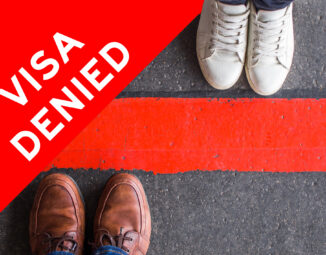COVID-19 Vaccination to be Required of Most Green Card Applicants
The U.S. Centers for Disease Control and Prevention (CDC) have recently added vaccination against COVID-19 to its list of required vaccinations for individuals seeking lawful permanent resident status—colloquially known as a “green card”—in the United States. This requirement becomes effective on October 1, 2021.
While this new addition is the first change in mandated vaccinations in some time, the CDC/U.S. Citizenship and Immigration Services (USCIS) have long required green card applicants to either evidence their vaccination history, get the required vaccines, and or else request and obtain a lawful exemption to the rules. This rule is tied to section 212(a)(1)(A)(ii) of the Immigration and Nationality Act, which prescribes vaccination against vaccine-preventable diseases for individuals seeking an immigrant visa or else applying for adjustment of status from within the U.S.
The new vaccine requirement will be included in routine medical examinations performed by USCIS-approved doctors and civil surgeons, which are incumbent upon all those seeking permanent residency. Applicants will have to show documentary proof of full COVID-19 vaccination at the time of their medical examination. They must have received the full series of vaccinations for the doctor to mark that s/he has satisfied the new requirement. The acceptable versions of the vaccine include those manufactured by Pfizer-BioNTech, Moderna, and Janssen (Johnson & Johnson).
The new requirement includes some preliminary guidance regarding the possibility of securing a waiver to the vaccine.
Blanket Waivers:
- Not age-appropriate: if the applicant is younger than the lowest age limited for the approved COVID-19 formulations in use, the doctor can document a Blanket waiver on the medical report. Within the U.S., the youngest eligible age is generally 12.
- Contraindication: If an applicant has a contraindication or precaution to the approved COVID-19 vaccine formulation available, the “Contraindicated” reason should be documented, and the vaccine should not be administered. If the applicant has had a severe reaction to the first dose that is considered a contraindication to receiving a second dose, the first dose should be documented in addition to the blanket waiver.
- Not routinely available: If none of the approved COVID-19 vaccines are routinely available in the country where the panel physician practices, the “Not routinely available” reason should be documented. If an approved COVID-19 vaccine is available to the applicant but limited supply would cause significant delay for the applicant to receive it, then this situation would also be considered “Not routinely available.”
Individual Discretionary Waivers:
- Applicant may request a waiver based on religious or moral convictions: If an applicant objects to vaccination based on religious or moral convictions, it must be documented that the applicant is requesting an individual waiver based on religious or moral convictions. This is not a blanket waiver. The applicant will have to submit a waiver request to US Citizenship and Immigration Services (USCIS). USCIS will determine if this type of waiver is granted, not the panel physician or CDC. The immigration agencies have yet to issue specific guidance on this point, however, it is anticipated that these individual waivers for an exemption will not be commonplace.
As this is a new change, you should work with your Obermayer immigration attorney on any questions and to ensure compliance during your green card process.
The information contained in this publication should not be construed as legal advice, is not a substitute for legal counsel, and should not be relied on as such. For legal advice or answers to specific questions, please contact one of our attorneys.





